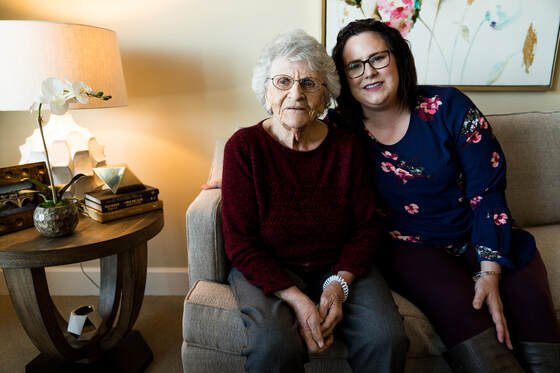Using Humor & Music to Help Those Suffering from Alzheimer’s
People with Alzheimer’s disease often appear to lose the ability to laugh or smile but researchers say most individuals still retain some sense of humor. It is a good thing as a recent study out of Australia reports humor may enable Alzheimer’s patients to better cope. The University of New South Wales in Australia’s recently published study shows humor therapy can be as effective as some drugs in managing agitation in dementia patients.
Researchers studied the effectiveness of professional humor therapists, known as Elder Clowns, who work with trained nursing home staff called Laughter Bosses. The group performed weekly humor sessions to nursing home patients or individuals using techniques similar to Clown Doctors, who work in children’s hospitals. An Osaka University Graduate School of Medicine in Suita, Japan study reinforced the Australian research finding the positive effects of humor can last for weeks after a therapy session.
Other areas of research have discovered positive behavioral changes in Alzheimer’s patients when listening to a personalized playlist. The Journal of Prevention of Alzheimer's Disease reports on a study showing music with a particular meaning to a person “can activate regions of the brain typically untouched by early Alzheimer’s disease and may offer a new way to approach anxiety, depression and agitation in patients.”
Jeff Anderson, M.D., a contributing author of the study and an associate professor of radiology at the University of Utah Health, explains the study was inspired by the “Alive Inside” documentary at the Sundance Film Festival. He adds music-brain connection research is just getting started.
The new MorningStar at West Valley is designed from the ground up to care for seniors suffering from Alzheimer’s and other forms of dementia. Our holistic approach to memory care includes a gentle flow of purposeful activities that leverages the power of music, dance, art, aromatherapy, and animals to heal and comfort whatever the extent of memory impairment. Located in West San Jose with easy access to I-280 and the San Tomas Expressway, we are close to the Santa Clara Valley Medical Center and O’Connor Hospital. Visit our website for contact info and to reserve a select suite. We open to residents in the last quarter of 2022.
Source:
aarp.org/caregiving/health/info-2018/humor-alzheimers-dementia-caregiving.html
aarp.org/health/brain-health/info-2018/music-therapy-alzheimers-symptoms.html?intcmp=AE-CAR-HEA-EOA1



















